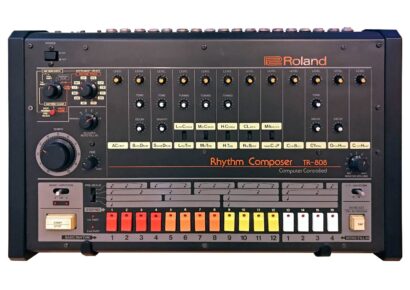After a hiatus, Crowded House reformed in 2020. 2024's album Gravity Stairs follows 2021's Dreamers Are Waiting.
Crowded House and their influence, reputation, history and character precede them. Neil Finn’s tenacity as a songwriter, penning songs that are now the soundtracks to our lives and loves, the legacy they as a band have built is a mountain high. Their new album, Gravity Stairs, is out today, and we had the chance to chat to Mitchell Froom, Crowded House’s keyboard player as well as a producer in his own right.
Read more gear features, artist interviews and how-to columns here.
Having joined officially in 2020 as the band reformed, Froom also worked as a producer on 1986’s Crowded House, Temple of Low Men in 1988 and 1991’s Woodface – a favourite here at the Mixdown office.
Mitchell Froom
Mitchell is in Los Angeles, at his home, in Santa Monica to be exact. It’s late afternoon and he’s wrapping up the day chatting to us. We dive into the production end of things, and I ask what it’s been like transitioning from producer to band member, having been a part of writing 2024’s Gravity Stairs.
“Neil Finn has always written most of the songs.” he begins, clarifying. “In this case, Liam and Elroy also wrote a couple songs. The band jams, but we don’t write songs together.
“They have something, they’ll record it, and at this stage in Neil’s career, he’ll often change things later – and sometimes quite radically. Back when we originally worked together, he and I would get together, work on the songs, [and] arrangements. Then we’d take it to the band and record ‘em and that was it. Now it’s different. It’s more fluid.”
Froom goes on to say that it’s effectively Neils’ band, Nick Seymour obviously being a huge part of the group, being the only other original member.
Gravity Stairs
We shift to recording, discussing the workflow. Is there a clear delineation between the end of songwriting and the beginning of production per se?
“I always look at it like, if someone comes in with something, that’s their song.” he explains. “In this case, it’s not like ‘Oh I’ve got this idea’ and everyone starts playing and the chords start changing, it’s not like that.”
“There’s usually ‘the song’, and Neil will take it away and he won’t be happy with some bits so he’ll take it away and re-write it. Sometimes we’ll re-cut it, it’s a bit different.”
Crowded House record basic tracks as a band in the studio, and while sometimes there’s overdubs, they were only together three or four times over a few weeks. From the basic tracks, they would add parts, Mitchell adding keys and others having input, but the foundation was cut with people playing together live.
I acknowledge that recording live seems to be a bit of a lost art, many records today being made by layering instruments over a metronome.
“I don’t like to complain about the way modern music is,” states Froom. “I just don’t care for a lot of it.”
“The even bigger thing that gets lost is: there’s very little times when people are playing a song together. If you go back to historically to how music works, that’s kind of how music has always worked.”
“What you look for, is you look for the mood of the song, if it’s a band and it’s based on everyone playing with feeling… I’m kind of sad to not see more of it. Usually when we play, you can record it five, six or seven times, whatever—there’s one that’s just a lot better. It hits a mood. It’s very complicated as to why that’s the case. Sometimes it’s as simple as the drummer played the snare drum a little quieter, sometimes it’s how people backed up the singer. Sometimes the singer sang so well [that] everybody just played along.”
“I’m not really complaining about it, I’m just sad about it. I’ve heard a real musical take, that is just so much better than everything else. You feel so happy. Each person brings their own personalities to it.”
We speak for a moment about the history of recorded music. Before recording, music was simply a community thing, with performances always happening live and it was entirely about the energy, feel and vibe. Even at the advent of recording, bands would be recorded usually by a handful (or single) of microphones in a room, and would have to balance themselves for a good recording. The drummer couldn’t simply bash away, and the bass players had to play consistently as there was no going back afterwards. None of this is to say that we should return to this way of working – but it shifts focus back onto bands to be good.
Froom wants to be concise here, saying: “People say multitrack ruined music. It didn’t, it just became different. Even when multitrack happened you’d still have people playing together in a room, trying to get something, a feeling or a sound going.”
Pivoting back to Gravity Stairs, I ask Froom what it was like handing over the reigns to another producer, in this case Steven Schram, to make a record for Crowded House.
Steven Schram
“In this case, I have a certain theory about producing, which is oftentimes after an artist has been doing things for a long time, unless there’s something specific they want from a producer… like I would never want to produce Neil Finn. I wouldn’t want to produce this band. Everyone knows too much.” he says with a laugh.
“I prefer just playing, I give my opinion here or there, and very rarely will that be forceful. Once in a while, it will be, but no, I’m happy about it. I’m really enjoying that part of it.”
Speaking further to the influence of a producer, typically and historically to help shape and hone the sound. Do a band with a catalogue like Crowded House have references going into the studio?
“There’s a discussion, I think since the band got together more and more, ‘let’s make the music more outgoing’. If it’s a band and you’re on a bigger stage in front of a bigger audience, let’s do stuff that works in that context. You can still do a ballad, but one that will resonate. One that will reach out.”
Is there any thought of the live show during the making of a record? Overdubs are all good and well, but they need to be performed, played or otherwise live!
“Nah,” he says, dismissing the concept. “You’ll work it out and I think a lot of times that’s where bands sound really bad, if they’re just playing parts. They’ll say ‘Oh, I don’t have that keyboard so I’ll just play that part on a guitar.’ You gotta ask yourself – is that a good guitar part?” explains Mitch.
That’s a valid point, instruments are selected for tonality, timbre, feel or energy, and shifting them around ruins that mood. You can fill in the harmonic gaps, but Froom recommends turning the piano part into a guitar part instead of blindly playing the same notes in the same order.
“Just make it sound good. Don’t think that every passing tone, and every sound has to be duplicated. Nobody cares, it just makes you sound like a worse band.”
We speak further to the mixing process, Froom explaining that Steven Schram had a lot of dense mixes to work through, but no part of it feels overwhelming. Woodface, famously mixed by Bob Clearmountain, had the same feel. The clarity on Woodface is pleasant, but that’s a testament to the arrangement itself, with licks and earworms coming and going but the record never feeling like too much.
“As I’ve gone, this is something I learned from working with Randy Newman, usually if you’ve got an idea, say, something to accompany the song, record it, but usually if you cut that in half, that’s better.”
“Trust the space and don’t fill up every hole. It shouldn’t feel like you’re filling up every hole with information. Let the mood carry it.”
We discuss, for a moment, the invention of the DAW, and the timeline full of empty gaps playing a part in feeling the pressure to fill every gap.
“Yeah,” Froom laughs. “Maybe when we started to see music it got worse.”
Crowded House are on tour in 2024. For ticketing, dates, venues and more, keep reading here.

